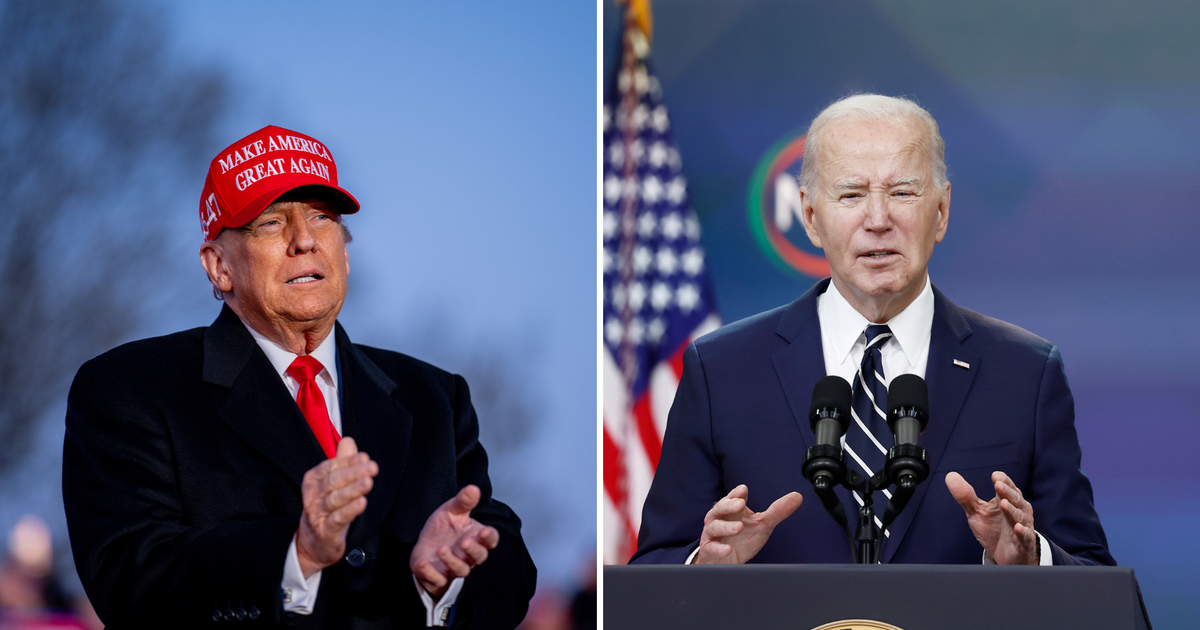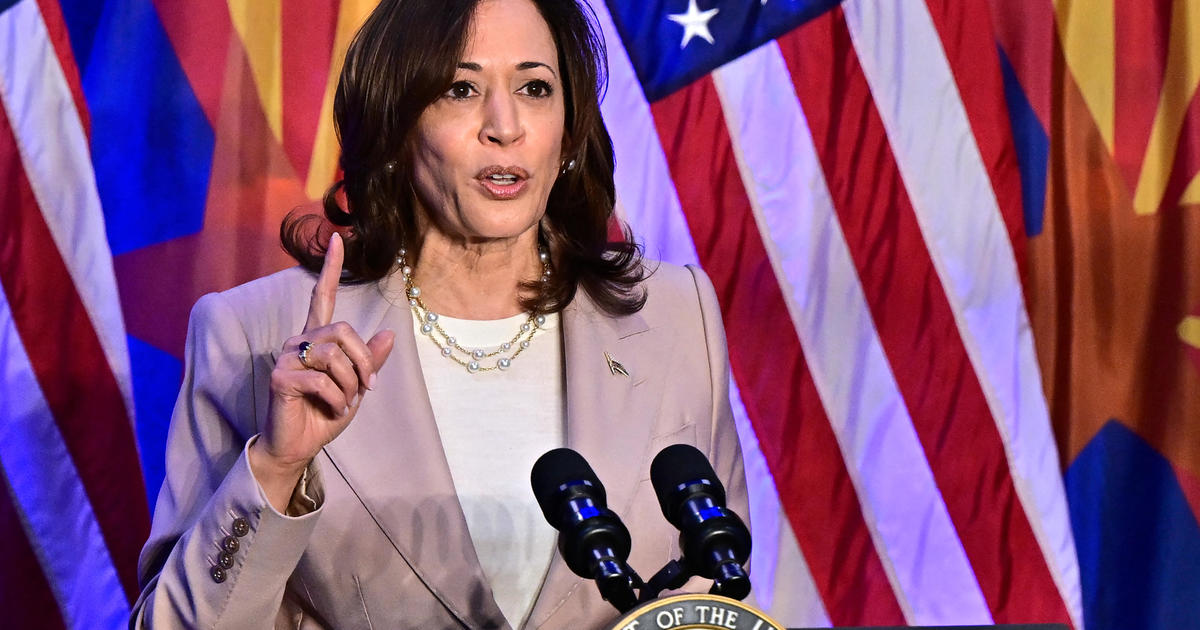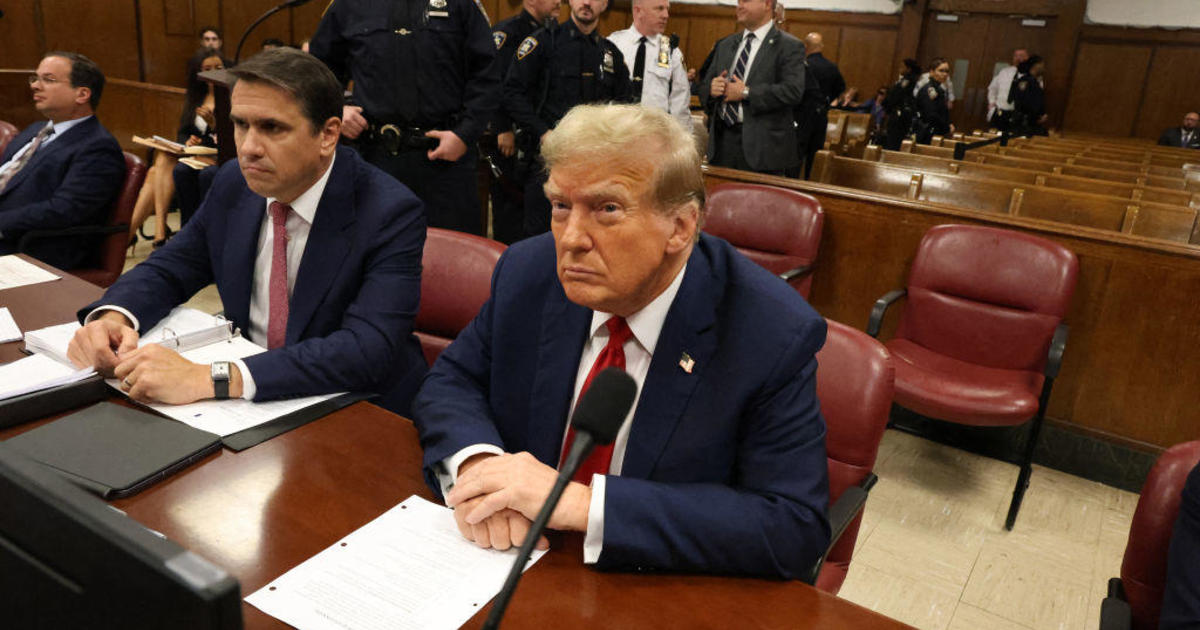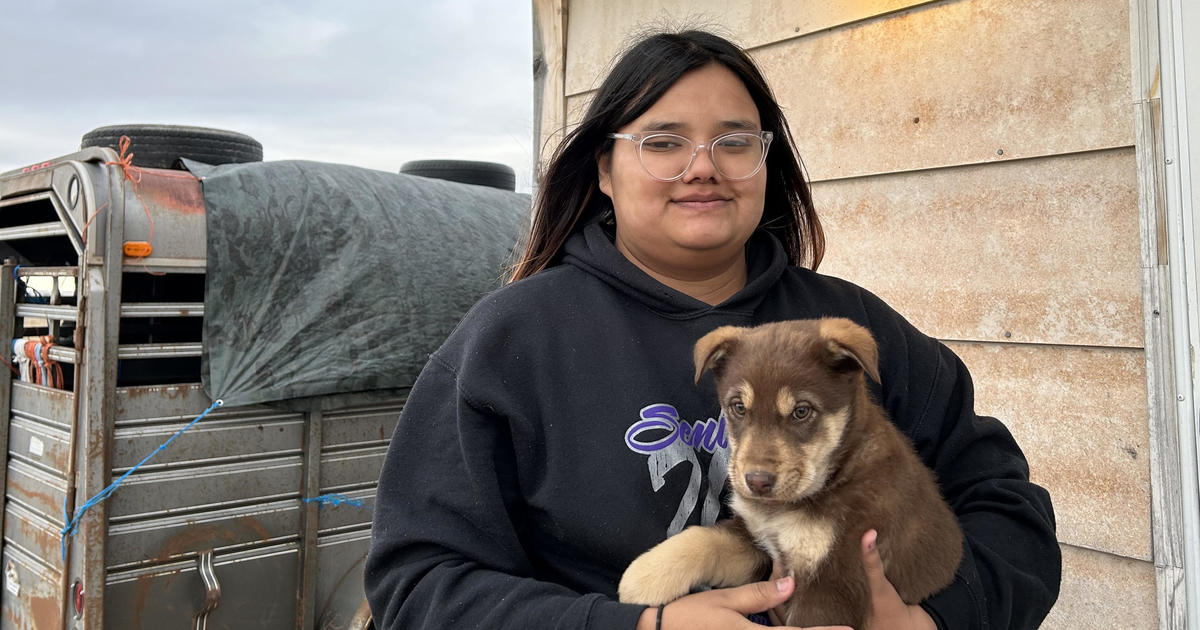Arizona national monument, home to sacred Native American burial sites, is being blown up for the border wall
A national monument in Arizona, home to rare species and sacred Native American burial sites, is being blown up this week as part of construction for President Trump's border wall, Customs and Border Protection confirmed to CBS News. "Controlled blasting" inside Arizona's Organ Pipe Cactus National Monument began this week without consultation from the Native American nation whose ancestral land it affects, according to the congressman whose district includes the reservation.
"There has been no consultation with the nation," said Congressman Raúl Grijalva of Arizona, who is the chair of the House Committee on Natural Resources and whose district contains the reservation and shares 400 miles of border with Mexico. "This administration is basically trampling on the tribe's history — and to put it poignantly, it's ancestry."
Customs and Border Protection told CBS News that the blasts are in preparation for "new border wall system construction, within the Roosevelt Reservation at Monument Mountain in the U.S. Border Patrol's Tucson Sector."
The explosions are occurring on Monument Hill, a burial site for the Tohono O'odham Nation, according to Grijalva.
The border wall cannot be constructed on the Native American reservation because it is private land. The nation's burial sites, however, which Grijalva said are "immediately adjacent" to the reservation, are on public land, making them fair game for the Department of Homeland Security, which oversees the Customs and Border Protection.
Grijalva sent a letter to Homeland Security on January 7, expressing his "serious concerns" over the wall's construction on historically tribal land. He urged the department to consult the nation "government-to-government," before moving forward with construction.
He has not heard back.
"There's been stonewalling, no response for any request," he said.
Weeks before construction began, Grijalva — along with Tohono O'odham elders, chairman Ned Norris Jr, and archaeologists — toured the nation's sacred ceremonial sites, located within Organ Pipe. The group saw rock piles and burial sites with bone fragments dating back thousands of years. One burial site, known as Las Playas, contained artifacts that go back 10,000 years.
"What we saw on Monument Hill was opposing tribes who were respectfully laid to rest — that is the one being blasted with dynamite," Grijalva said.
In addition to the monument's cultural significance, the land is also a designated UNESCO Biosphere Reserve, an international effort to "conserve samples of the world's ecosystems."
"The Organ Pipe Cactus Biosphere Reserve is a first-generation biosphere reserve created in 1976 for the conservation of the unique resources representing a pristine example of an intact Sonoran Desert ecosystem," according to the National Park Service's website. "The biosphere designation has helped to attract scientists from around the world to Organ Pipe Cactus to conduct a variety of important studies to help us better understand the Sonoran Desert and the impact of humans on this amazing landscape."
Like other remote land that the border wall will bisect, many people are concerned with how the unnatural barrier will irreparably impact Organ Pipe's unique habitat.
Customs and Border Patrol says they have an "environmental monitor" present during the blasts and other "on-going clearing activities," but would not clarify to CBS News what the monitor is doing, or who they are.
The Trump administration has been able to legally construct the border wall over public land due in large part to a little known law passed in the wake of the 9/11.
The REAL ID Act of 2005 gives the federal government broad power to waive other laws that stand in the way of national security. Under REAL ID, the Trump administration has waived dozens of laws — including the Native American Graves Protection and Repatriation Act, the Endangered Species Act, and the Environmental Protection Act — in its bid to construct the border wall.
"Of the 21 times the (REAL ID) waiver has been enacted since 2005, 16 of those instances have occurred in the last two and a half years," reads the letter Grijalva sent to Homeland Security.
According to the congressman, construction of the border wall has been expedited in Arizona due to an abundance of public land. In Texas, another border state, building the wall has been slowed because it is largely private land.
Efren Olivares, director of the racial and economic justice program at the Texas Civil Rights Project, told the Pacific Standard last year that the REAL ID has essentially eliminated federal laws protecting public land.
"The idea that the secretary of (the) DHS could come to your community and say no laws apply here, what kind of rule of law is that?" Olivares said. "People should be outraged to know that Homeland Security can wield that kind of power."
Grijalva said repealing REAL ID has been a priority of his for many years.
He plans to convene a hearing of the House Committee on Natural Resources' subcommittee for Indigenous Peoples in the coming weeks to address the impact of the wall — and waiver — on Native American communities.
In his letter to Homeland Security, Grijalva wrote: "Using this waiver to avoid essential federal government responsibilities to tribes is unnecessary, reckless, and counter to the Department's own policy."



